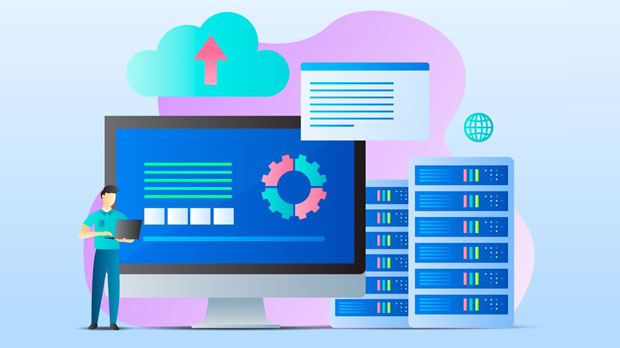Automatic IP rotation plays a crucial role in modern web scraping, particularly in applications related to ticketing, inventory management, and the timely extraction of data. It provides a solution to challenges such as IP blocking and rate-limiting, which can hinder efficient data retrieval. By rotating IP addresses, businesses can avoid detection, mitigate risks of being blacklisted, and ensure continuous and seamless access to the most up-to-date information. This article explores how automatic IP rotation enhances the scraping process across these domains, improving data accuracy, speed, and accessibility while safeguarding the integrity of operations. Understanding the Need for Automatic IP RotationIn the competitive world of online ticketing and inventory management, having up-to-the-minute data is essential. However, websites that provide such data often impose restrictions to prevent excessive data scraping. IP-based rate-limiting and blocking are common techniques employed to deter scrapers. When a single IP address sends too many requests in a short time, it triggers these security measures. Automatic IP rotation provides a mechanism to bypass these limitations by using multiple IP addresses, allowing continuous data extraction without being detected or blocked.How Automatic IP Rotation WorksAutomatic IP rotation is a process where multiple IP addresses are used to request data from a server, either at set intervals or dynamically. This technique ensures that no single IP address is overused, thus avoiding the risk of being blocked or flagged by the website’s security systems. The IPs are rotated in a manner that mimics natural user behavior, making it harder for anti-bot systems to detect scraping activities. This method can be implemented in various ways, including using proxy servers, VPNs, or rotating IP services.Enhancing Ticketing Data ScrapingIn the ticketing industry, real-time data access is essential for monitoring seat availability, price fluctuations, and event schedules. Websites that sell tickets often impose rate-limiting to prevent bots from rapidly checking availability, especially for high-demand events. Automatic IP rotation addresses this issue by distributing requests across different IPs, allowing scrapers to collect vast amounts of data without triggering blocks. For instance, consider a concert ticketing platform that releases tickets in waves. If a scraper using a static IP attempts to gather data on ticket availability during a high-demand period, the server may block that IP after repeated requests. By employing IP rotation, the scraper can continue making requests from different addresses, avoiding blocks and ensuring timely updates on ticket availability. This enables businesses to gather accurate data in real-time and optimize their pricing or marketing strategies accordingly.Optimizing Inventory Data ExtractionInventory data scraping is a vital part of managing stock levels, product prices, and competitor analysis. Retailers and wholesalers rely on accurate, up-to-date information to adjust their pricing strategies and inventory management practices. Websites that sell products often restrict excessive scraping to protect their business interests. When a static IP address continuously accesses the same data, the site may detect this as suspicious behavior and block it.Automatic IP rotation resolves this issue by ensuring that requests are distributed among a wide range of IP addresses. As a result, scrapers can continuously extract valuable product information, such as price changes, stock levels, and promotions, without encountering IP blocks. With this data, businesses can adjust their inventory and pricing strategies to remain competitive, enhance customer satisfaction, and drive sales.Timeliness in Data ScrapingTimeliness is paramount in industries that rely on real-time data. For example, financial market data, sports scores, and product availability must be scraped and processed as quickly as possible to maintain competitive advantage. Automatic IP rotation enhances the speed and efficiency of data scraping by circumventing the blocking mechanisms that could slow down or stop data extraction.For businesses involved in e-commerce, travel, or event management, staying on top of time-sensitive data such as flight availability, hotel bookings, or concert schedules can be a game-changer. Automatic IP rotation allows businesses to gather the latest data without interruption, ensuring that they can make timely decisions based on the most current information available.Minimizing the Risk of IP BlacklistingOne of the primary risks of scraping data from websites is the possibility of IP blacklisting. When a website detects suspicious behavior from a single IP address, such as sending too many requests in a short time, it may blacklist that IP address. Once blacklisted, the IP cannot access the site, effectively halting any scraping operations.Automatic IP rotation mitigates this risk by using multiple IP addresses to distribute the scraping load. Even if one IP address gets blacklisted, the others can continue scraping without disruption. This helps businesses maintain uninterrupted access to critical data sources, preventing the loss of valuable insights due to IP-related issues.Improving Data Accuracy and Reducing RedundancyAutomatic IP rotation can also improve the accuracy of the data being scraped. By using multiple IP addresses, businesses can avoid the risk of scraping the same data repeatedly from a single source, reducing redundancy. In high-demand situations, such as tracking product prices or ticket availability, scraping from various IP addresses can result in more diverse data sources, leading to a more comprehensive and accurate view of the market.This reduction in redundancy is especially beneficial in applications like inventory management, where businesses need to track subtle changes in product availability or price fluctuations across multiple platforms. With accurate, non-redundant data, businesses can make better-informed decisions that align with market trends and consumer behavior.Automatic IP rotation is a valuable tool in the world of ticketing, inventory, and timeliness data scraping. By ensuring seamless data extraction without triggering blocks or IP blacklisting, businesses can stay ahead of the competition with up-to-date, accurate information. Whether it's for monitoring ticket availability, tracking product prices, or gathering time-sensitive data, IP rotation allows for more efficient, uninterrupted, and reliable scraping processes. Implementing this technology with best practices can enhance data accuracy, reduce redundancy, and ultimately provide businesses with the insights they need to make informed decisions in real-time.
Nov 10, 2025



































































